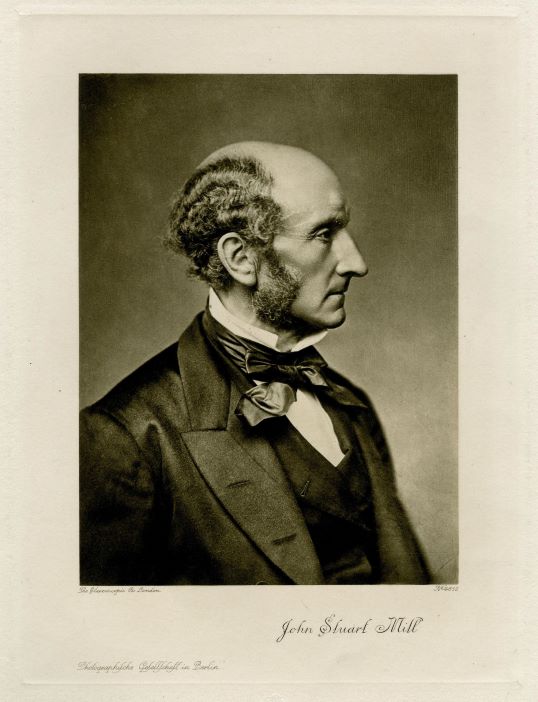Liberty Matters
The Jevons Turn
 Steve Kates makes a strong case that we can learn more about sound economic policy from J. S. Mill than from J. M. Keynes. In one of my previous posts I mentioned a key intermediary figure, W. S. Jevons, and here I wish to return to him. This is because I think there is some important “filling in” to do in the narrative that traces economic views of policy from the mid-19th century through the mid-20th. I point here to two key intermediate steps: the late 19th-century turn away from laissez faire and the rise of new welfare economics in the early half of the 20th century.
Steve Kates makes a strong case that we can learn more about sound economic policy from J. S. Mill than from J. M. Keynes. In one of my previous posts I mentioned a key intermediary figure, W. S. Jevons, and here I wish to return to him. This is because I think there is some important “filling in” to do in the narrative that traces economic views of policy from the mid-19th century through the mid-20th. I point here to two key intermediate steps: the late 19th-century turn away from laissez faire and the rise of new welfare economics in the early half of the 20th century.Jevons as Intermediary
While William Stanley Jevons is often regarded as one of the three key pioneers of the marginal utility revolution, he was also heavily involved in policy analysis. His The State in Relation to Labour (1882) and the posthumously published Methods of Social Reform (New York: Kelley Reprint, 1965 [1883]) are replete with calls for government intervention to help the laboring poor and to “fix” their ongoing mistakes.[65] Jevons, like other early neoclassical economists, believed that the laboring poor were hopelessly myopic.[66] In his Theory of Political Economy (1871) he wrote about a “being of perfect good sense and foresight” whose consumption decisions and only whose consumption decisions followed his utility maximizing prescriptions; all others, without intervention to induce increased saving, violated his equilibrium prescriptions.[67] Thus, Jevons and his contemporaries paved the way for economists to depart from Mill’s presumption that people were the best judges of their own interests and instead to propose ways to make people adhere to economic rationality.
The Rise of New Welfare Economics
A second development that also intersects with Keynesian-style policy analysis is the rise of new welfare economics. Here, in a nutshell economists gained warrant to sketch out apparent welfare-enhancing policies that depended on the possible compensation of losers by winners. Such an exercise represented a significant departure from the style of economic analysis that flourished up until the mid-19th century in which actual compensation was presumed. Classical economists thought about policy reform in the context of actual exchange among equals.
All of this is to suggest that economists in the mid-20th century assumed a more capacious role for direction, for specifying how people ought to behave, and for making suggestions as to how to achieve overall goals of economic growth and well-being. Perhaps one beneficial result of the financial crisis of 2008 and its aftermath is that at least some economists and the public at large have begun to reevaluate the basis on which claims to authoritative knowledge about how to direct the economy were based.
Endnotes
[65.] William Stanley Jevons, The State in Relation to Labour (London: Macmillan, 1882); and Methods of Social Reform (New York: Kelley Reprint, 1965 [1883]) online </titles/316>.
[66.] See Sandra J. Peart, “Irrationality and Intertemporal Choice in Early Neoclassical Economics,” Canadian Journal of Economics 33 (1), 2003, 175-89.
[67.] William Stanley Jevons, The Theory of Political Economy, [London: Macmillan, 1871; fourth edition 1911], p. 72. Online 1888 3rd ed. </titles/625>.
Copyright and Fair Use Statement
“Liberty Matters” is the copyright of Liberty Fund, Inc. This material is put on line to further the educational goals of Liberty Fund, Inc. These essays and responses may be quoted and otherwise used under “fair use” provisions for educational and academic purposes. To reprint these essays in course booklets requires the prior permission of Liberty Fund, Inc. Please contact oll@libertyfund.org if you have any questions.